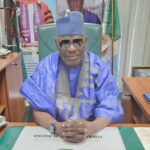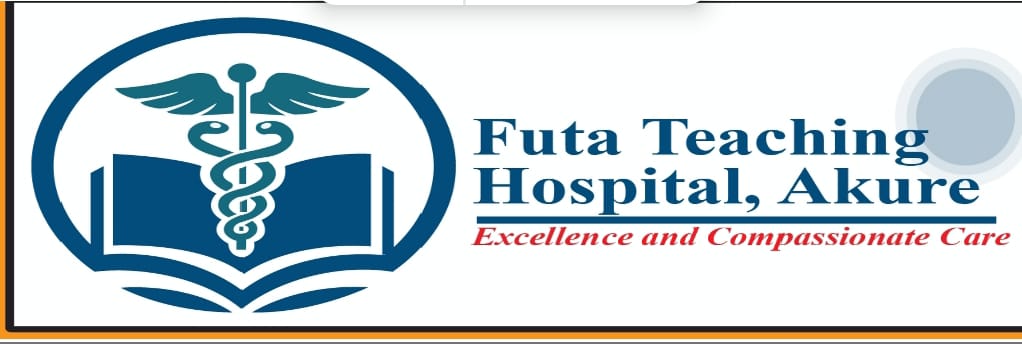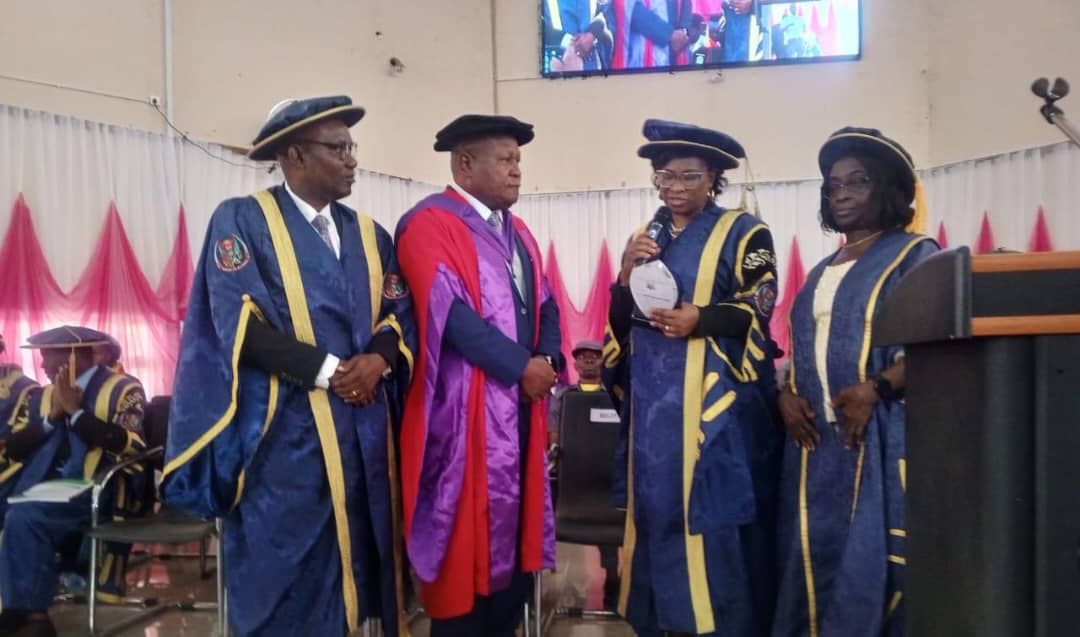By: John Paul Akinduro
No writer in possession of all of his faculties will celebrate any Nigerian university, particularly a public one at this critical time; arguably, this will be the most troubling question on the lips of my reading audience. In the truest sense, no one should do so at a period when thousands of students who are supposed to be in classrooms are roaming the streets but not talking about the superlative state of the University of Medical Sciences (UNIMED) Ondo city in Ondo state, an institution whose operational philosophy is excellence or nothing, may be for the sake of solidarity not because the university has not earned it against all odds.
It will interest you to know that UNIMED has been running an uninterrupted academic calendar since it admitted its first set of students in 2016 even during the Covid-19 pandemic that paralyzed all activities worldwide and, the ongoing industrial action by the Academic Staff Union of Universities (ASUU), which has entered its 6th month as of today, the university still runs smoothly. With this simple clarification, I hope you can now sail with me with an unprovoked mindset as I do a refractometric analysis of this budding but pace-making training hub for medical and health science professionals.

As expected, the university is not immune from all the agonizing limitations being suffered in the education sector generally. It only found the best way to scale the hurdles. Established in 2014 as the first specialized medical and health sciences university in Nigeria by the then Governor of Ondo state, Dr Olusegun Mimiko, UNIMED may not have lived up to the expectations of its founding fathers due to the wonted ‘Nigerian factor’ which are mainly poor funding and misplaced priority but one can not but extol the new grounds that the university breaks daily in spite of all the inadequacies.
In a broader sense, the institution has grown from having 5 courses at inception to 26 fully accredited courses, 2 schools; of public health and of postgraduate studies, 9 faculties including the new faculty of medical rehabilitation, which is the first of its kind in any Nigerian university. It has also graduated and inducted its first set of Nursing and Physiotherapy students with that of medical and dental students happening very soon.
The icing on the cake for me is how the university management, headed by Adesegun Fatusi, a Professor of Public Health and Community medicine from the prestigious Obafemi Awolowo University (OAU) Ile-Ife and former Provost of College of Health Sciences OAU, sources for funds to pay salaries and other monthly obligations including accreditation of courses and purchase of state-of-the-art training equipment such as the ones in its dental phantom lab, the gym and the swimming pool in the medical rehabilitation faculty and the new molecular laboratory, which is one of the best in the country, among others.
It is noteworthy that the ‘Friends of UNIMED’ scheme, of which I am an enrollee, is arguably one of few of such initiatives in our public universities and it has helped the institution sustain its enviable position among Nigerian universities, public and private alike. The idea is to target every stakeholder of the university by enrolling them in either a monthly or yearly donation of cash and or other items for as low as a thousand naira and this, the institution follows up religiously.
Also worthy of commendation is its access to the Tertiary Education Trust Fund (TetFund) in less than 6 years of its existence, donation of buildings by eminent indigenes of Ondo kingdom such as the faculty of Basic Clinical Sciences building gifted it by High Chief Isaac Akintade and as well as attracted the largesse of the Olu Akinkugbe Pharmacy Education Trust (OAPET) who will be donating a 2.5bn faculty of Pharmacy building to the university’s permanent campus.
The management of the university is ambitious, I dare say, as they have done everything administratively possible to ensure that they move to the permanent site in Laje by 2024 when the university will be 10yrs old. Fatusi often says that the university is reaching for the STARS, which is his own coinage to drive the development strategy. STARS is an acronym for Strategic Repositioning, Technological Advancement, Accentuated Capacity Development, Resource Mobilization and Optimization and Sustained Stakeholders’ Engagement.
Without prudent management of its meager resources, it would have been difficult, if not impossible to hire the best brains at a point when the country is losing thousands of health professionals to the UK, Canada, Saudi Arabia and the likes every year. It will also be arduous to emplace creative teaching methods and introduce novel courses of study, which also calls for some adulation. In fact, UNIMED has the largest number of medical and health sciences courses of any Nigerian university.
In the sciences, the institution offers Chemistry with medicinal chemistry option, physics with medical physics option and computer science with application to the health sciences and still runs the basic medical science courses such as anatomy, biochemistry and physiology while also offering physiotherapy, prosthetics and orthotics under the new faculty of medical rehabilitation. This is in addition to medicine, nursing and dentistry, among others.
This remarkable feat has attracted attention from both local and international organizations in the education sector. In just 7 years of its founding, the National Universities Commission in 2021 ranked UNIMED as 19th overall best university in Nigeria, 3rd best among all specialized universities, coming behind Federal University of Technology Akure (FUTA) and Ladoke Akintola University of Technology (LAUTECH) Ogbomosho. In this category you have universities of agriculture, medical and health science universities and universities of technology, among others.
If you extrapolate that, UNIMED is the first university of medical and health sciences on the list. Also, it is first out of the 3 Ondo state-owned universities, 2nd out of 7 universities in Ondo state both private and public, 4th best out of over 40 state-owned universities in Nigeria. I must confess, If UNIMED were an American university, it would probably be competing with Ivy league schools.
Before now, young school leavers willing to study medicine but could not gain admission into the public universities, used to enroll in private universities. This is largely due to the high cut-off mark set by Joint Admissions and Matriculation Board (JAMB) and the cap set by the Medical and Dental Council of Nigeria (MDCN) on the number of medical students a university can admit but
that trend is waning as thousands of young Nigerians whose parents are middle-income earners now run to Ukraine to study medicine and come home for the one-year mandatory National Youth Service Corps (NYSC) and the next you would hear of them is that they are on their way out of the country after residency, which they now rarely get placement for.
On the average, a Nigerian studying medicine in any Ukrainian university pays about $4,500 (₦3,150,000) in tuition for a session. This excludes cost of hostel accommodation, which is around $1,000 (₦700,000), feeding and other miscellaneous expenses of $1500 (₦1,050,000). This calculation is pegged at ₦700 to USD1.00, which is the current exchange rate in the black market where most, if not all of these people buy dollars.
Looking at what most Nigerians pay for medical education in Ukraine, it is important to up our game and make Nigeria the go-to destination for medical education and training. Although, the state of some of our Teaching Hospitals are appalling but at least, we can get one thing right for once – training medical and health science professionals for the rest of the world.
Comparing UNIMED to the only state-owned medical university for now may put the institution as one of the most affordable around here. The Ebonyi state-owned King David University of Medical Sciences (KDUMS) in Ohara charges around ₦3m for medicine, ₦2.5m for pharmacy, ₦2m for Nursing Science, Medical Laboratory Science, Dentistry and others with the least tuition being ₦1m. This is according to the university’s website. Even though it has more funding needs than KDUMS, UNIMED still charges as low as ₦200,000 for some science courses.
You may be wondering what the future holds for this pioneering specialized medical and health sciences institution? The university is not resting on its oars as it has concluded plans to roll out a set of disruptive programs in medical education. According to the Vice-Chancellor, the new institute of Advanced Clinical Sciences Education, which has finalized curriculum for masters in health law and policy, and MSc and PhD curricula across several clinical fields, will soon take off.
We, Friends of UNIMED, UNIMEDics (students of UNIMED) and indeed all stakeholders are looking forward to the full commencement of operations at the new Centre for Health Professions and Biomedical Education, which is established to drive the agenda of educating university-based health and medical teachers in the art and science of teaching and learning.
This center is fully staffed with education technologists and media production experts as well as state-of-the-art integrated clinical simulation facility, fully functional radio and television studios. It has also developed an online certificate training programme for university lecturers and ready to run diploma and masters programme in health professions education
No doubt, the university still has a lot to do in the coming years to sustain these gains and continue to serve as a model to over 7 of its kind across the country at the moment.
John Paul Akinduro, a communications specialist, Tech Evangelist and Special Assistant on Media and Digital Communications to former Governor Olusegun Mimiko, is a Friend of UNIMED. The views expressed here are solely his.










